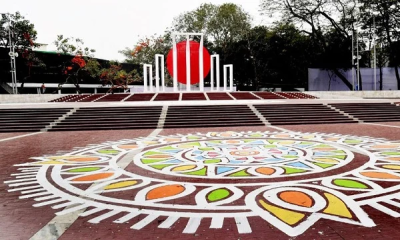Bangladesh aims to send several hundred thousand workers to Japan within the next year, including around 30,000 students, according to speakers at a seminar held in Dhaka on Monday.
The seminar, titled “Opportunities and Challenges of Higher Education and Employment in Japan”, took place at the National Archives building in Agargaon. It was organized by the Association of Japanese Language Institutes in Bangladesh (AJLIB), with the support of Top J Bangladesh and Bdjobs.
Speakers noted that Japan’s labor market is opening up for Bangladesh, with opportunities not only for blue-collar jobs but also for white-collar employment—provided applicants acquire Japanese language skills and technical training. The cost of student migration has been estimated at about 500,000 taka, with banks expected to provide loans of up to the same amount to facilitate migration.
The government’s Japan Cell under the Ministry of Expatriates’ Welfare and Overseas Employment has set a target of sending 100,000 workers annually. Authorities also warned that recruiting agencies failing to send workers within six months may lose their licenses.
Special envoy for international affairs to the Chief Adviser, Lutfey Siddiqi, stressed the importance of skills training, noting that many Bangladeshis struggle abroad due to low wages and sometimes fall into crime to supplement their income. He cited examples from the Middle East, where ministers complained that a significant share of prison inmates were Bangladeshis.
Bangladesh’s Ambassador to Japan, Md. Daud Ali, emphasized the need for students and workers to pass mandatory tests, as Japan is prepared to admit up to 10,000 Bangladeshi students next year. He added that tuition payment procedures have already been made easier in collaboration with Japanese authorities.
Other speakers, including AJLIB President Md. Wakil Ahmed, Bdjobs CEO Fahim Mashroor, and Japan Cell policy advisor Zia Ahsan, highlighted the need for government support, access to student loans ranging from Tk 5–7 lakh, and stronger training programs to ensure Bangladeshi migrants can compete effectively in Japan.
The seminar was attended by AJLIB members, heads of 200 language institutions, education experts, and senior government officials.


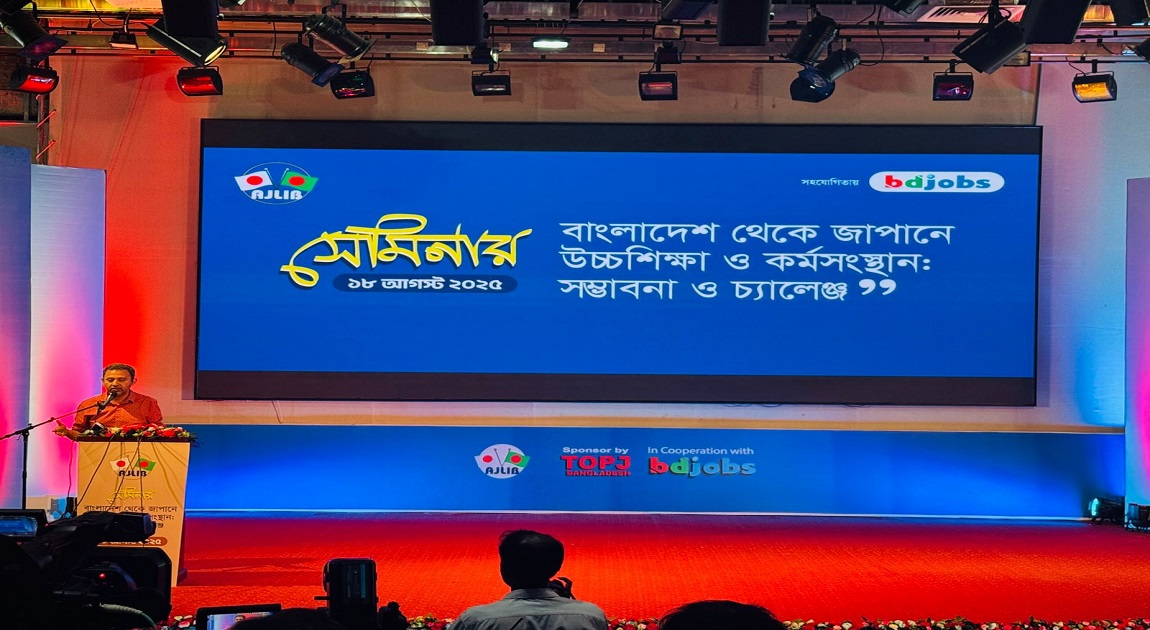

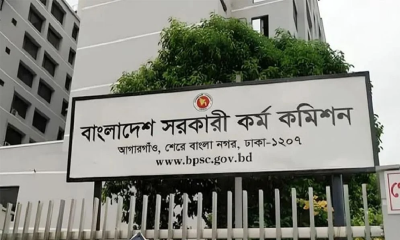
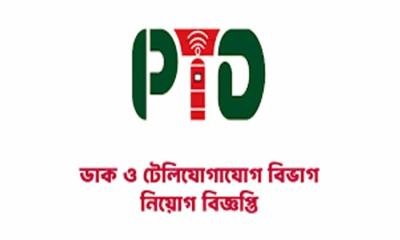

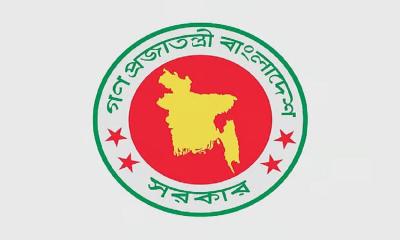
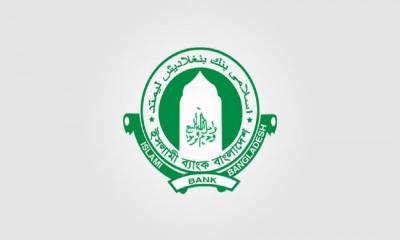





-20260221022942.jpg)
-20260221022827.webp)





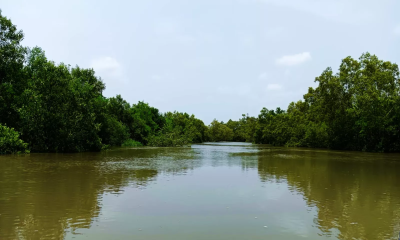

-20260220065859.jpeg)
